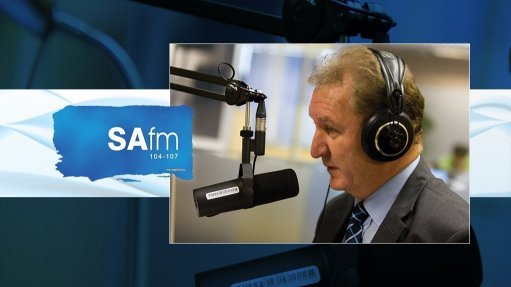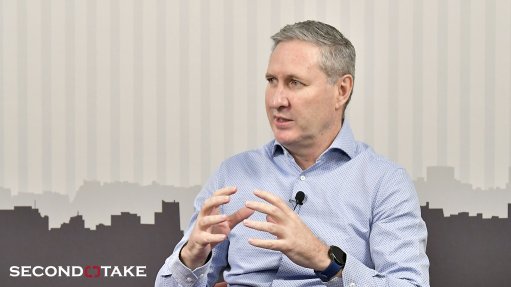West Africa’s Brexit moment
In a televised announcement on January 28, the West African nations of Burkina Faso, Mali and Niger let it be known they had ceased to be members of the regional bloc in that neck of the woods with immediate effect. Their gripes included the imposition of sanctions on the three nations after their junta-led governments grabbed State power between 2021 and 2023.
In their joint statement, read by a Mali Cabinet Minister, the three governments also whined about the Economic Community of West African States (Ecowas) now pandering to foreign powers and having deviated from its founding principles. They are also unhappy that the bloc, which was founded in 1975 to promote the economic integration of its 15 member States, is failing to support their fight against Islamist insurgents, while imposing what they termed “illegal, illegitimate, inhumane and irresponsible sanctions” to prod them to restore constitutionalism.
It would be difficult to fault Ecowas’s imposition of economic sanctions on the junta-led nations. That’s what it’s statutes dictate it should do when a member State goes rogue. We have seen this happen multiple times, and the anecdote that looms large in my memory is the swift military deployment when former Gambian strongman Yahya Jammeh tried to employ dirty tricks to remain in power after losing an election in 2016.
But what boggles the mind is that the constitutional sensibilities of Ecowas – and other regional blocs – get offended only when some fellow in the army of a member State decides to stage a coup, and not when an incumbent President behaves in a clearly undemocratic manner.
I’ll use Mali to illustrate my point. Before the late former President Ebrahim Keita was deposed by the military in 2022, protestors had been calling on him to resign since June 2020 over a disputed Presidential election in 2018 in which he claimed a re- election victory. Their ire was also sparked by Keita’s failure to tackle corruption and his inability to take back control from ethnic Tuareg rebels and aligned jihadists who seized two-thirds of the country in 2012.
In the midst of Covid-19 lockdowns and countrywide insecurity because of jihadist attacks, Keita bulldozed the holding of legislative elections in 2020. To top it all, the Constitutional Court, clearly under Keita’s thumb, overturned results from 31 constituencies, handing the President’s party ten extra Parliamentary seats.
Unless I missed it, there was no condemnation of Keita by Ecowas. All we heard was a proposal by the regional bloc for Keita to create a government of national unity that would incorporate the opposition.
Sadly, condonation of a rogue head of State in a member State happens all too frequently. In the Southern African Development Community region, our leaders prefer to hear, see and speak no evil when the likes of Zanu-PF in Zimbabwe steal elections or when eSwatini’s King Mswati rides roughshod over his subjects.
Back to Ecowas’s Brexit moment. The analogy is actually tenuous: whereas the UK did everything by the book when it pulled out of the European Union, Burkina Faso, Mali and Niger have averred they will disregard the requirement to serve a year’s notice before leaving.
The pull-out will have dire ramifications, including on the economies of the three countries, as it may amount to the countries condemning themselves to economic isolation. For example, citizens of the three countries will likely lose the rights they have under the Ecowas Protocol to travel visa free for trade and other purposes within West Africa. In addition, the remaining Ecowas members may begin to levy import duties on goods from the three countries.
Beyond that, the withdrawal may represent a huge setback for the African Continental Free Trade Area (AfCFTA), the full implementation of which is projected to increase real incomes on the continent by about 7%, or nearly $450-billion.
This is because regional economic blocs are the pillars of the AfCFTA and the shrinking of Ecowas following the withdrawal of Burkina Faso, Mali and Niger – which account for 8% of the bloc’s gross domestic product – equates to a weakening of one of the pillars.
If only the juntas would see sense and reconsider.
Comments
Press Office
Announcements
What's On
Subscribe to improve your user experience...
Option 1 (equivalent of R125 a month):
Receive a weekly copy of Creamer Media's Engineering News & Mining Weekly magazine
(print copy for those in South Africa and e-magazine for those outside of South Africa)
Receive daily email newsletters
Access to full search results
Access archive of magazine back copies
Access to Projects in Progress
Access to ONE Research Report of your choice in PDF format
Option 2 (equivalent of R375 a month):
All benefits from Option 1
PLUS
Access to Creamer Media's Research Channel Africa for ALL Research Reports, in PDF format, on various industrial and mining sectors
including Electricity; Water; Energy Transition; Hydrogen; Roads, Rail and Ports; Coal; Gold; Platinum; Battery Metals; etc.
Already a subscriber?
Forgotten your password?
Receive weekly copy of Creamer Media's Engineering News & Mining Weekly magazine (print copy for those in South Africa and e-magazine for those outside of South Africa)
➕
Recieve daily email newsletters
➕
Access to full search results
➕
Access archive of magazine back copies
➕
Access to Projects in Progress
➕
Access to ONE Research Report of your choice in PDF format
RESEARCH CHANNEL AFRICA
R4500 (equivalent of R375 a month)
SUBSCRIBEAll benefits from Option 1
➕
Access to Creamer Media's Research Channel Africa for ALL Research Reports on various industrial and mining sectors, in PDF format, including on:
Electricity
➕
Water
➕
Energy Transition
➕
Hydrogen
➕
Roads, Rail and Ports
➕
Coal
➕
Gold
➕
Platinum
➕
Battery Metals
➕
etc.
Receive all benefits from Option 1 or Option 2 delivered to numerous people at your company
➕
Multiple User names and Passwords for simultaneous log-ins
➕
Intranet integration access to all in your organisation
















